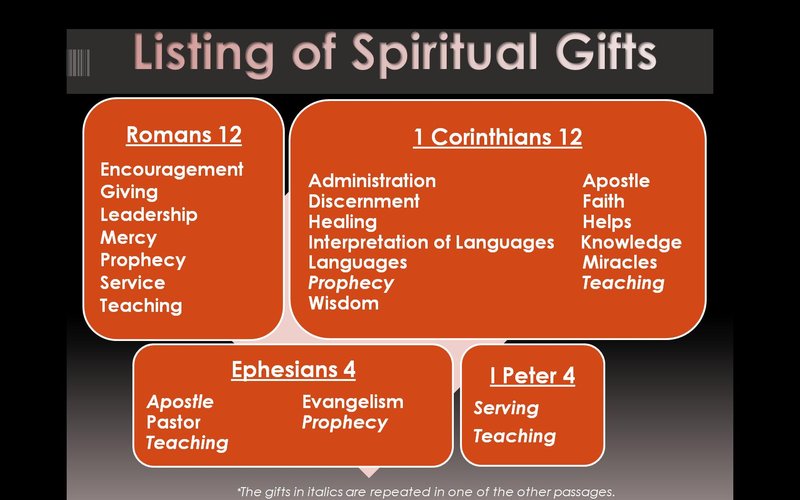· Youth · 9 min read
7 Biblical Principles for Healthy Relationships: Navigating Love, Boundaries, and God's Design
Discover how to navigate relationships with biblical principles, set healthy boundaries, and recognize signs of unhealthy dynamics in this Christian parenting guide.

7 Biblical Principles for Healthy Relationships: Navigating Love, Boundaries, and God’s Design
In the Christian faith, relationships are a vital part of our lives. Whether it’s dating, friendships, or marriage, the Bible provides principles to guide our interactions and help us build healthy relationships. By following these biblical principles, we can navigate love, set appropriate boundaries, and honor God’s design for relationships. In this article, we will explore seven key principles for healthy relationships and discuss how they can be applied in various contexts.
1. How can we approach dating with biblical principles and boundaries?
Dating is an important phase in finding a life partner, and it is crucial to approach it with biblical principles and boundaries. The Bible encourages believers to seek a partner who shares the same faith and values (2 Corinthians 6:14). This principle ensures that both individuals are aligned spiritually and have a strong foundation for their relationship.
Setting boundaries in dating is also essential. It involves establishing guidelines that honor God, protect our hearts, and maintain purity. Boundaries can include physical limits, emotional boundaries, and time spent together. By setting clear boundaries, we demonstrate respect for ourselves and our partner while keeping God’s commands at the forefront of our relationship.
As we navigate dating with biblical principles and boundaries, it is important to remember that each relationship is unique. Seek guidance from trusted mentors or pastors who can provide wisdom and accountability. Ultimately, by aligning our dating practices with the teachings of the Bible, we create a solid foundation for a healthy relationship.
2. How can we navigate friendships and peer relationships according to biblical principles?
Friendships play a significant role in our lives, shaping our character and influencing our choices. The Bible offers guidance on how we can navigate friendships and peer relationships in a way that honors God. Proverbs 13:20 reminds us, “Walk with the wise and become wise, for a companion of fools suffers harm.” This verse highlights the importance of choosing friends who share our values and encourage us to grow in our faith.
Additionally, the Bible encourages us to practice love, kindness, and forgiveness in our friendships. In John 15:12, Jesus says, “This is my commandment: Love each other as I have loved you.” By demonstrating Christ-like love to our friends, we create an environment of trust and support.
It is also essential to be discerning in our friendships. Proverbs 22:24 advises, “Make no friendship with a man given to anger, nor go with a wrathful man.” This verse reminds us to be cautious about forming close relationships with individuals who exhibit harmful behaviors or negative influences.
Navigating friendships and peer relationships according to biblical principles requires us to seek wisdom from God’s Word and rely on His guidance. By surrounding ourselves with godly friends and practicing love and discernment, we can foster healthy friendships that honor God.
3. How can we recognize signs of unhealthy relationships according to the Bible?
Unhealthy relationships can have detrimental effects on our emotional well-being and spiritual growth. The Bible provides guidance on recognizing signs of unhealthy relationships and offers wisdom for navigating such situations.
One of the key indicators of an unhealthy relationship is when it violates God’s commands. Ephesians 5:11 advises us to have no fellowship with the unfruitful works of darkness but rather expose them. If a relationship is characterized by sinful behavior or encourages us to compromise our faith, it is important to reevaluate its healthiness.
Another sign of an unhealthy relationship is when it hinders our personal growth. Proverbs 27:17 states, “As iron sharpens iron, so one person sharpens another.” Healthy relationships should challenge and encourage us to become better individuals. If a relationship consistently brings us down or holds us back from pursuing God’s purpose for our lives, it may be time to reassess its impact.
Additionally, unhealthy relationships often lack trust, respect, and effective communication. Proverbs 20:19 advises against associating with those who gossip or betray confidence. If a relationship is characterized by constant negativity, gossip, or lack of trust, it may be time to seek guidance and consider distancing ourselves from that relationship.
By being aware of these signs and seeking guidance from the Bible and wise mentors, we can identify and address unhealthy relationships in our lives.
4. How can we practice respectful communication and conflict resolution based on biblical principles?
Effective communication and conflict resolution are crucial in any relationship. The Bible provides valuable guidance on how to communicate respectfully and resolve conflicts in a way that honors God.
James 1:19 instructs us to be “quick to listen, slow to speak, and slow to become angry.” This verse encourages active listening and patience in our communication. By genuinely listening to others without interrupting or jumping to conclusions, we demonstrate respect for their thoughts and feelings.
Ephesians 4:29 reminds us to use words that build up rather than tear down. This principle emphasizes the importance of speaking with kindness, gentleness, and love. When conflict arises, we should strive to address the issue directly while maintaining a respectful tone.
In Matthew 18:15-17, Jesus provides a model for resolving conflicts within the church community. This process involves addressing the issue privately first, then involving trusted individuals if necessary. It emphasizes the importance of seeking reconciliation and restoration rather than harboring resentment.
Practicing respectful communication and conflict resolution based on biblical principles requires humility, patience, and a commitment to seeking peace. By following these guidelines, we can foster healthy relationships and resolve conflicts in a way that honors God.
5. How does understanding God’s design for love and marriage impact our relationships?
Understanding God’s design for love and marriage is foundational to building healthy relationships. In Genesis 2:24, God institutes the union between a man and a woman, saying, “Therefore a man shall leave his father and his mother and hold fast to his wife, and they shall become one flesh.” This verse highlights the importance of commitment and unity in marriage.
Ephesians 5:25-33 provides further insight into God’s design for marriage. It instructs husbands to love their wives sacrificially, just as Christ loved the church. Wives are called to submit to their husbands as the church submits to Christ. This model of selfless love and mutual respect forms the basis of a healthy marriage relationship.
Understanding God’s design for love and marriage also helps us navigate dating relationships. The Bible encourages us to pursue relationships with the intention of marriage (1 Corinthians 7:8-9). By seeking a partner who shares our faith and values, we align ourselves with God’s plan for love and marriage.
Ultimately, understanding God’s design for love and marriage shapes our perspective on relationships. It encourages us to prioritize commitment, sacrificial love, and mutual respect, leading to healthier and more fulfilling relationships.
6. How can we apply biblical principles to strengthen our marriages?
Marriage is a sacred institution designed by God, and applying biblical principles can strengthen the bond between spouses. Ephesians 5:22-33 provides guidance on how husbands and wives should relate to one another. Husbands are called to love their wives sacrificially, just as Christ loves the church. Wives are called to submit to their husbands as the church submits to Christ. These principles emphasize mutual respect, selflessness, and unity.
Prayer is a crucial aspect of a strong marriage. Philippians 4:6-7 encourages us to bring our requests and concerns to God in prayer. By seeking God’s guidance and inviting Him into our marriage, we can find wisdom, healing, and peace.
Another important principle for a healthy marriage is forgiveness. Colossians 3:13 instructs us to forgive one another as the Lord forgave us. Forgiveness allows us to let go of past hurts and move forward with grace and compassion.
Regularly investing time and effort into the relationship is also vital. Ecclesiastes 9:9 encourages spouses to enjoy life together, reminding us that marriage is meant to be a source of joy and companionship.
By applying these biblical principles in our marriages, we create an environment of love, respect, forgiveness, and unity that honors God.
7. How does love for God impact all other relationships in our lives?
Loving God is the foundation for healthy relationships with others. In Mark 12:30, Jesus says, “You shall love the Lord your God with all your heart and with all your soul and with all your mind and with all your strength.” This commandment emphasizes that loving God is the greatest commandment of all.
When we love God with all our being, it transforms our relationships with others. Our love for God shapes the way we love and treat others. 1 John 4:19 reminds us, “We love because he first loved us.” God’s love empowers us to love selflessly and unconditionally.
Loving God also helps us prioritize our relationships. When we place God at the center of our lives, He guides us in forming healthy connections and setting appropriate boundaries. By seeking His guidance through prayer and studying His Word, we gain wisdom to navigate relationships with grace and discernment.
Furthermore, loving God enables us to forgive and reconcile with others. Ephesians 4:32 instructs us to “Be kind to one another, tenderhearted, forgiving one another, as God in Christ forgave you.” As we experience God’s forgiveness and grace, we are equipped to extend the same to those around us.
Ultimately, loving God impacts all other relationships in our lives by shaping our attitudes, actions, and priorities. It enables us to reflect His love and grace in our interactions with others.
In conclusion, biblical principles provide a solid foundation for healthy relationships. By approaching dating with biblical principles and boundaries, navigating friendships based on biblical values, recognizing signs of unhealthy relationships, practicing respectful communication and conflict resolution according to biblical teachings, understanding God’s design for love and marriage, strengthening marriages through applying biblical principles, and allowing our love for God to impact all other relationships in our lives, we can build strong and fulfilling connections that honor God. By following these biblical principles and seeking wisdom from His Word, we can navigate love, boundaries, and God’s design for relationships in a way that brings glory to Him.



